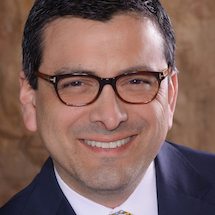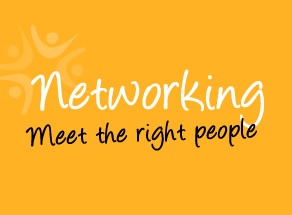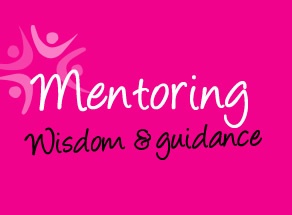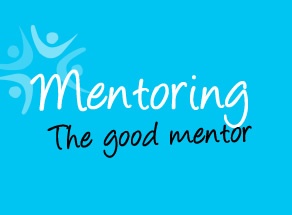
Born Leaders: Hitting barriers – and the opportunities behind them – head on
05/24/2016 10:35AM | 6932 viewsHispanics and Latinos who mindfully tap one or more of the six elements of an “immigrant mindset” can attract greater opportunities for success. By nature, immigrants see opportunity everywhere; more easily adapt to changing conditions; pursue their passions to uncover endless possibilities; do their jobs as if they owned the business; form strong bonds to treat colleagues and friends as family; and willingly share that success with others to keep the prosperity cycle going. Born Leaders tells their stories.
Growing up, Randy Martinez lived the life of a “military brat,” relocating often as most Air Force families typically do. It was a life of constant upheaval and adventure, and one that taught a young Martinez how to quickly adapt to ever-changing circumstances – and create opportunity for himself.
The constant change would become a valuable asset in his career. As Director of Strategic Diversity Management for the Pharmacy Benefits Management and Enterprise Shared Services businesses of CVS Health, Martinez combines a career background and diverse experiences that help support leadership in diversity management strategies.
In short, “I work toward bringing out each person’s uniqueness to help him or her contribute to the organization’s overall success,” he says.
Early challenges
Born to a single mother from Nicaragua, in Los Angeles, Martinez spent his early years living in a Spanish-speaking home with his grandmother.At six, his mother married and they soon transferred to Cheyenne, Wyoming, where his stepfather began his career as an Air Force Officer launching ballistic missiles. Going from the bustle of Los Angeles to a quiet rural setting created huge culture shock for Martinez, who didn’t even yet speak English.
Martinez’s stepfather pursued opportunities within the military, moving the family back to California, and then to Colorado and other locations. Each re-location posed new challenges that required the young Martinez to adapt quickly to fit in, find friends, and acclimate to the new locations and school cultures.
Learning to adjust allowed the young Martinez to develop many skills that helped him build his career. For example, he learned to network to make friends with the people around him. He’d hang out at the local popular store where kids would meet in the summer, drink a soda, and just start talking to them.
“The transitional military lifestyle forces you to make friends – you can’t just wait around for it to happen. I learned to like networking. I learned how to put myself out there and not be afraid,” he says.
At the end of his junior year in High School, the family was transferred to Montgomery, Alabama, where Martinez became transfixed with the area’s history – and its place in the civil rights movement. Montgomery, and nearby Selma, were the backdrop of Martin Luther King Jr.’s Freedom March and the Bloody Sunday protests of 1965.
“For a kid like me from L.A. who had read a lot of the history of the South, it was pretty amazing to actually experience it,” he says. “I lived in the Heart of Dixie 20 years after Civil Rights were enacted, and would constantly hear people say that the South would rise again. That is how fresh it still was.”
As high school ended, Martinez wasn’t sure what he wanted to do with his life. As a child, he aspired to be a pilot as a result of being in an Air Force family. He played in a rock band while in Alabama, performing gigs in little country bars around the state, and envisioned himself as a rock star one day. Reality set in once again, and it was time for the family to relocate, this time to Northern Virginia. But at 18, soon after his move, any career thoughts were soon derailed by an unexpected twist: Doctors diagnosed Martinez with cancer. The next several years would be consumed with chemo treatments, operations and a complex divorce between his parents. Life required Martinez to adapt to difficult and unexpected twists.
An unexpected bump in the road
“At 18, you think you have the whole world in front of you. When I got cancer, I had to recalibrate. This was a huge turning point for me. Should I mope and feel sorry for myself, or do I dig deep and find optimism to grab on to?” This experience would shape the way Martinez would confront all challenges, he says.
A determined Martinez hunkered down, pushed through, beat the cancer and eventually transferred to nearby George Mason University. With a new resolve, he earned his bachelor’s degree in English, but still remained unclear about a career until his official final day of school.
It was a cold, rainy day in January. Martinez, then a part-time radiology assistant at a local hospital, was trekking to work.
“I remember walking to the metro and feeling anxious,” he says. “I remember thinking, ‘I’m officially done with school, and now what?’” At that moment, he stopped, turned around, and walked all the way home in the rain. A sudden flash of insight revealed his next move.
“I was one of the lucky Hispanic kids to get out of L.A. during the mid ‘70s and go experience a life of new, travel and adventure; a life out of poverty,” he says. “I understood that a lot of kids like me didn’t get to experience that, and so I wanted to change things to create more opportunity for kids like me.”
Arriving home, soaked and cold, Martinez flipped through a list of Hispanic non-profit organizations, and began calling each one. “I told them I was prepared to change the world,” Martinez recalls. “Looking back it’s funny, but that’s how I felt at the moment.”
As he dialed each number, many organizations encouraged him to apply formally. But someone Martinez had previously met at the National Hispanic Association of Publications (NAHP) needed help with an upcoming conference, and offered the young job seeker temporary work that became full time. Martinez’s first project was helping organize an event that included then President Bill Clinton as the keynote speaker. This would be the first of many speeches by world leaders that would begin to shape Martinez’s thoughts and interests. His career in Washington would involve fundraising, building non-profits and lobbying on business and social issues.
“I felt like I had found myself,” he says. “I really liked fundraising and lobbying for causes that helped people. I had no problem asking for money to solve big issues of the day.” Next, Martinez took a job fundraising for micro financing projects in small Latin American villages. “This was by far my favorite program that I keep close to me. It shaped the way I think about women’s issues, equality and fairness,” he says.
After learning the business of non-profit and creating opportunity for others, he turned his attention to the private sector. While most of his friends were starting dot-com businesses, Martinez focused on the policy side and created a trade organization that would help solve the business challenges in the e-Commerce space. He would become Chairman of the e-Commerce Summit for the U.S. Department of Commerce. With his ability to network effectively and raise money, he would start a trade organization representing online businesses. He would then focus attention on the federal moratorium on intrastate taxation of online commerce.
“Since I was young, I was always taking advantage of opportunities to learn skills on the job that might one day pay off later, like grant writing and fundraising, lobbying, and starting a nonprofit. I was always networking, preparing for the next opportunity.”
In 2005, Martinez’s career path led him to CVS Health. Today, his role advises on the company’s path to managing diversity.
“Strategic diversity management goes beyond race and gender. Our goal is to help organization leaders manage differences – and similarities,” says Martinez. “I advise corporate leaders in the integration of diversity management strategies in the areas of workforce, engagement, talent mobility and the external marketplace by bringing to an understanding the dynamics of the rapidly changing demographic to solve for the complexities it brings to the corporate work environment.”
That includes everything from ensuring greater opportunities for minorities, women, the disabilities community and LGBT community members, to helping new CVS Health employees. It’s about addressing all the diverse groups within the company, examining the generational differences, finding commonalities, building seamless plans forward, and ensuring a climate that brings out the best that each offers.
“I think we all want to make a difference in one way or another. How I’ve made that difference and how I will continue making it will be based on how I lead; I take that very serious.”
As for his next assignment or opportunity, Martinez is already preparing. He recently completed a two-year graduate master’s of business administration degree program, which was fully paid and supported by CVS Health.
“My philosophy is to always look ahead in my personal and professional life. I’m always looking at the barriers, and for the opportunities behind those barriers,” he says. “And I hit those both head on.”
To that end, Martinez takes inspiration from famed explorer Ferdinand Magellan.
Magellan said of the courage to succeed: “The sea is dangerous and its storms terrible, but these obstacles have never been sufficient reason to remain ashore. . . unlike the mediocre, intrepid spirits seek victory over those things that seem impossible . . . it is with an iron will that they embark on the most daring of all endeavors . . . to meet the shadowy future without fear and conquer the unknown.”
“Those words hang next to me in my home office, and I have them memorized.”






Post your Comment
Please login or sign up to comment
Comments